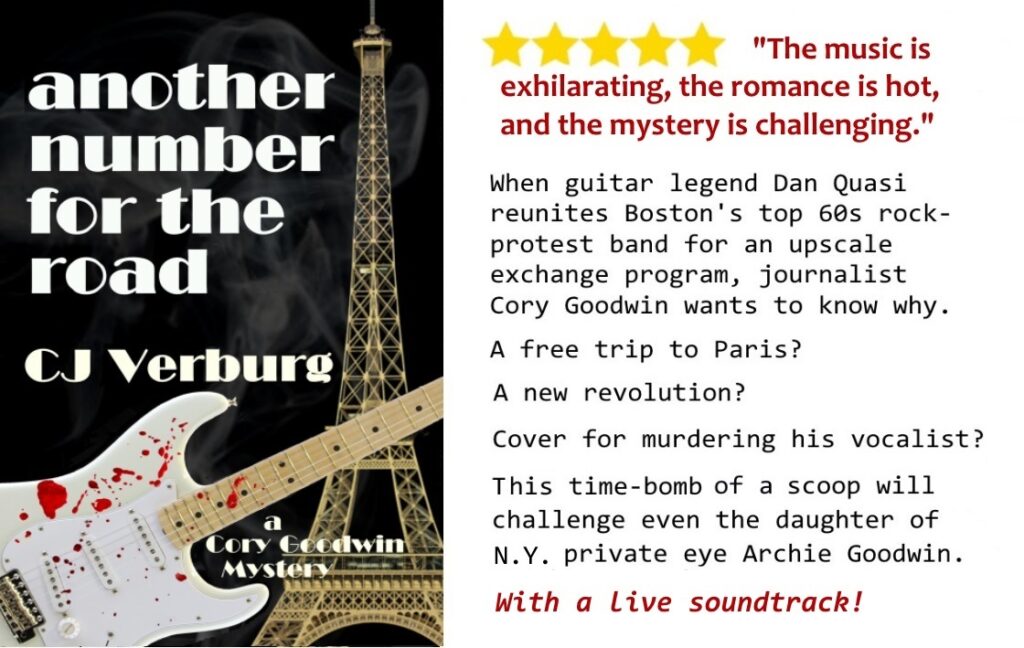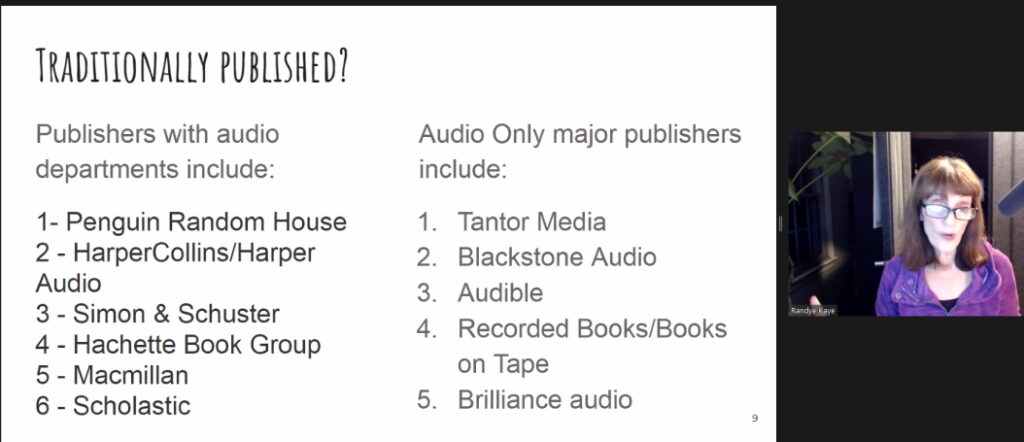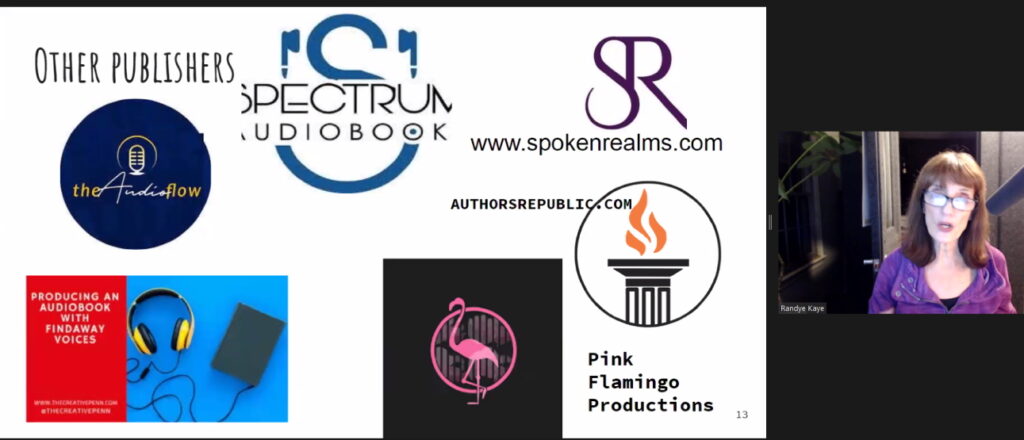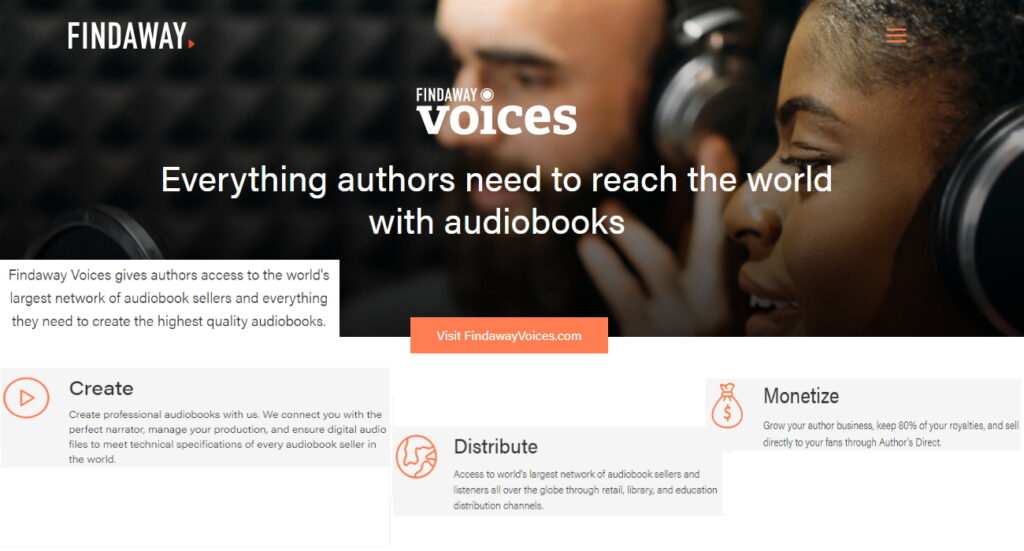 In the book-selling horse race, the long shot moving up fast on the outside is audiobooks. Before the pandemic, although audiobooks were only 10% of the market, they had the most growth. That accelerated in 2020, and it’s continuing in 2021. In a May 7 blog post on goodereader.com, Michael Kozlowski reports statistics from three top publishers:
In the book-selling horse race, the long shot moving up fast on the outside is audiobooks. Before the pandemic, although audiobooks were only 10% of the market, they had the most growth. That accelerated in 2020, and it’s continuing in 2021. In a May 7 blog post on goodereader.com, Michael Kozlowski reports statistics from three top publishers:
“Harpercollins stated that digital sales increased by 38% in the [first] quarter [of 2021]. Ebook sales were up 38%, and digital audiobook sales rose 42%. . . . Simon & Schuster said that digital sales in the United States rose 8% in the quarter . . . attributed to digital audiobooks, which increased 17%. Overall, ebook sales were flat. . . . Penguin Random House . . . saw a 4.6% increase in sales [in 2020]. . . . Audiobooks increased by around 15%.”
Partly, of course, people couldn’t get hold of print books so easily during lockdown. Habits changed with supply chains, as I noted in my recent presentation Pathways to Publication 2021. But there’s more to it than that. Words on a page are a message in a bottle — a translation of a 3-D real-time sensory experience. When I read a Sherlock Holmes story, I don’t see words; I see the movements and hear the voice of Jeremy Brett, or Benedict Cumberbatch. Most of us who write books likewise feel as though we’re transcribing what our characters are saying in our heads.
Audiobooks are more real to some readers than print books, and they’re also more convenient. You can listen to a book while the rest of you does something else, like cleaning house, or traveling.
 Personally, I’d rather read than listen, and I’d rather type than dictate, but I love multimedia. My first full-length novel centered on live music, and I waited decades to self-publish it because no commercial publisher would include a sound track. When e-books came along, and print-on-demand, I could include a sound track.
Personally, I’d rather read than listen, and I’d rather type than dictate, but I love multimedia. My first full-length novel centered on live music, and I waited decades to self-publish it because no commercial publisher would include a sound track. When e-books came along, and print-on-demand, I could include a sound track.
My nano-imprint Boom-Books also published a trio of Regency romances by Charisse Howard, which included audiobooks. At that time Amazon was the main distributor for indie publishers’ print and e-books, and they had just bought Audible, the main distributor for audiobooks. Amazon completed its vertical integration with ACX, a clearing house where an author who wants to publish a book in audio form can connect with a narrator. For either a flat fee, an hourly fee, or a percentage of royalties, the narrator produces a professional-quality set of digital files which ACX approves, turns into an audiobook, and distributes through Audible, which in turn sells it on Amazon.

Audible has pulled a couple of fast ones on their authors and narrators, first switching the royalty share from the producers’ favor to Audible’s favor, and more recently allowing their subscribers to return any audiobook without paying for it, even if they’ve listened to the whole thing. For consumers, that free ride was a big incentive. For producers, it was a stab in the back. What became known as Audiblegate I believe is still in litigation.
The Audiblegate furor encouraged some potential competitors to challenge Amazon’s lock on the audiobook market. Here are 2 slides from voiceover artist Randye Kaye. The first one shows which major publishers create and distribute their own audiobooks for the authors they publish, often under the same contract as the print and ebook. The second one shows some of the independent producers that authors can choose as an alternative to ACX and Audible.


The small red-and-blue rectangle at the bottom left shows what I think is the most promising option, Findaway Voices. Like ACX, this is a hub for authors to match up with narrators, turn the resulting sound files into an audiobook, and sell it through outlets like the fast-growing Swedish distributor Storytel. What makes Storytel so special? It just announced a ground-breaking audiobook partnership with Spotify, the hugely popular music distributor. Imagine Spotify’s audio quality plus its global reach paired with an audiobook source that’s one of the most popular in the world outside the US or UK market.
 A second major attraction of Findaway Voices for authors and consumers is its connection with the online marketing giant BookBub. Whether an author is traditionally or self-published, unknown or famous, BookBub has a reputation as the single best way to boost sales. It’s highly selective, and it charges authors a hefty fee to list a free or discounted book. Every day BookBub’s e-newsletter goes out to millions of subscribers, offering half a dozen carefully screened books in different genres. BookBub recently expanded into audiobooks with Chirp, which features a similar daily-deals newsletter by genre.
A second major attraction of Findaway Voices for authors and consumers is its connection with the online marketing giant BookBub. Whether an author is traditionally or self-published, unknown or famous, BookBub has a reputation as the single best way to boost sales. It’s highly selective, and it charges authors a hefty fee to list a free or discounted book. Every day BookBub’s e-newsletter goes out to millions of subscribers, offering half a dozen carefully screened books in different genres. BookBub recently expanded into audiobooks with Chirp, which features a similar daily-deals newsletter by genre.
A few more points about Findaway Voices. It does not appear to offer a royalty-share arrangement as a way for authors to pay narrators; a standard-length 80,000-word novel looks likely to cost the author close to $2,000. The author does keep 80% of the royalties, twice what Audible pays. Another advantage: Findaway Voices is not exclusive; it distributes through a range of outlets, including Audible. And if you’re an author who published an audiobook under Audible’s exclusive contract, once you regain your rights you can switch it over to Findaway Voices.
So what’s your experience? If you’ve tried any of these options, please let me and others know what you learned by posting a comment.

